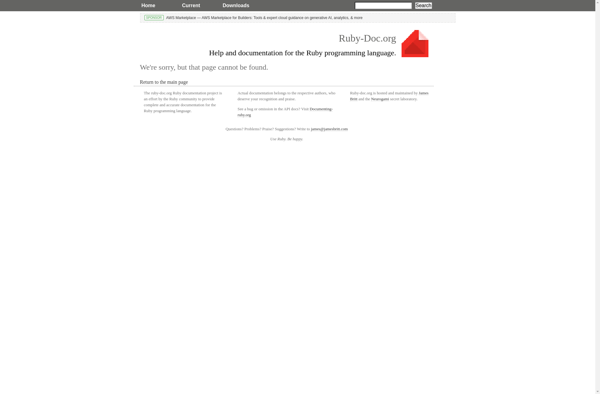Tornado Web Server
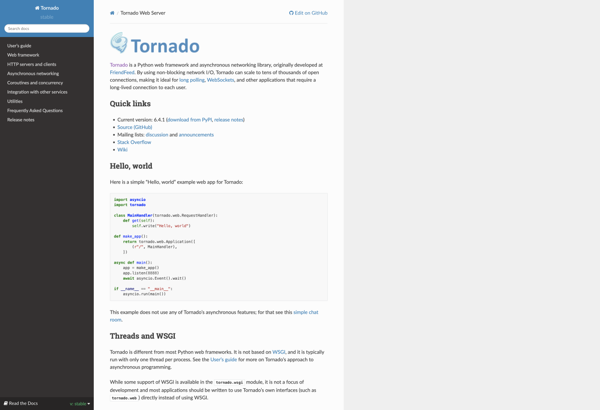
Tornado Web Server: High-Performance Python Web Framework
Tornado is an open-source web server and web application framework for Python, designed for high concurrency and scalability, suitable for building real-time web services and APIs.
What is Tornado Web Server?
Tornado is a powerful and open-source web server and web application framework developed in Python. It is designed to handle high concurrency and is particularly well-suited for scenarios where asynchronous and non-blocking operations are crucial. Tornado's architecture makes it suitable for building scalable and efficient web applications, real-time web services, and APIs. Key Features: Asynchronous I/O: Tornado employs an asynchronous and non-blocking I/O model, allowing it to efficiently handle a large number of simultaneous connections. This makes it well-suited for applications that require high concurrency, such as long-polling, chat applications, and real-time updates. Web Application Framework: Tornado includes a web application framework that simplifies the development of web applications. It provides features such as URL routing, request handling, template support, and integration with third-party authentication systems. WebSocket Support: Tornado has built-in support for WebSockets, enabling real-time communication between the server and clients. This is valuable for developing applications that require bidirectional communication, such as chat applications and online gaming. Scalability: Tornado's asynchronous architecture contributes to its scalability. It can efficiently handle a large number of concurrent connections with relatively low resource consumption, making it suitable for applications with varying levels of traffic. Built-in Support for Authentication and Security: Tornado includes features for handling user authentication, securing web applications with various authentication providers, and protecting against common web security vulnerabilities. Extensibility: Tornado is designed to be extensible, allowing developers to add custom functionality through the use of additional modules and third-party packages. This flexibility supports the integration of various components into Tornado-based applications. Support for Template Rendering: Tornado provides a template engine for rendering dynamic content in web applications. This allows developers to create dynamic HTML pages by combining static content with data from the server. Community and Documentation: Tornado has an active community of developers and users. The framework is well-documented, providing resources for developers to learn and explore the features offered by Tornado. Compatibility with Python 3: Tornado has been updated to be compatible with Python 3, ensuring that developers can leverage the latest features and improvements in the Python language. Tornado is often chosen by developers who require a lightweight and scalable framework for building real-time web applications and services. Its asynchronous nature makes it suitable for applications where handling many concurrent connections is essential.
Tornado Web Server Features
Features
- Asynchronous and non-blocking architecture
- Built-in support for WebSockets
- Can handle thousands of simultaneous connections
- Integrated with templating engines like Jinja2
- Includes tools for authentication, database access, queues, etc
Pricing
- Open Source
Pros
Cons
Official Links
Reviews & Ratings
Login to ReviewThe Best Tornado Web Server Alternatives
Top Development and Web Frameworks and other similar apps like Tornado Web Server
Here are some alternatives to Tornado Web Server:
Suggest an alternative ❐Nginx
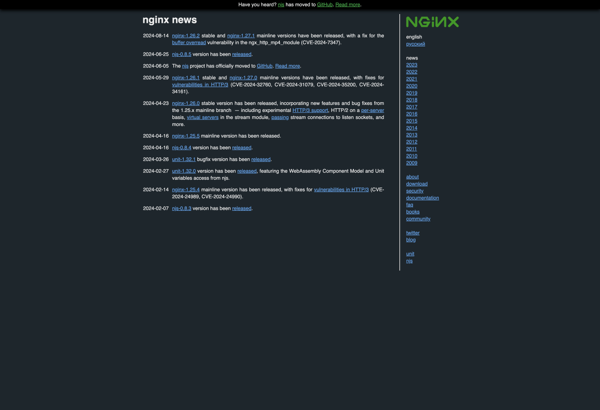
Apache HTTP Server
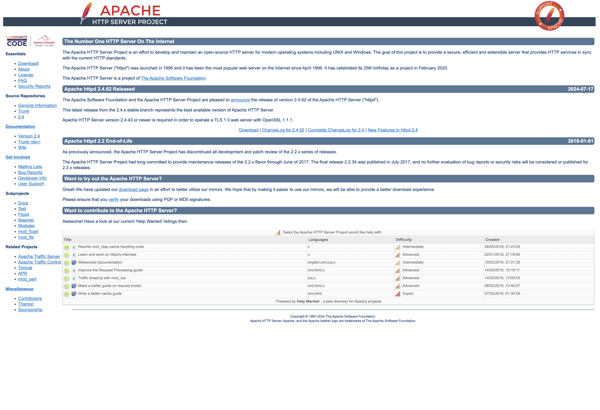
Lighttpd
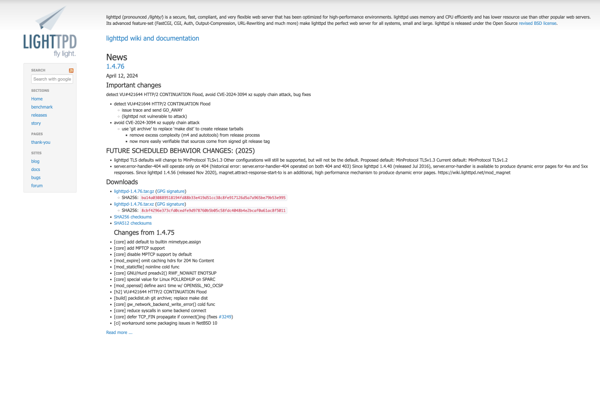
SimpleHTTPServer
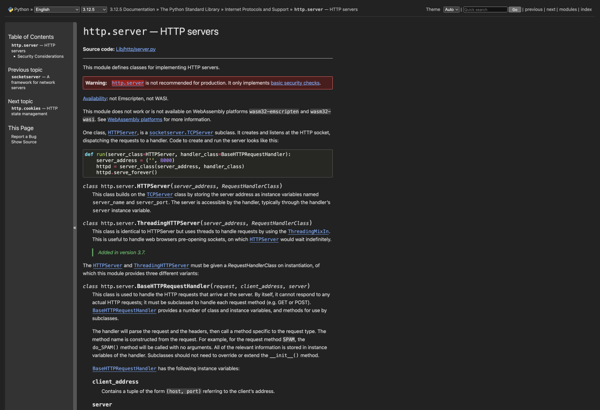
Microsoft IIS
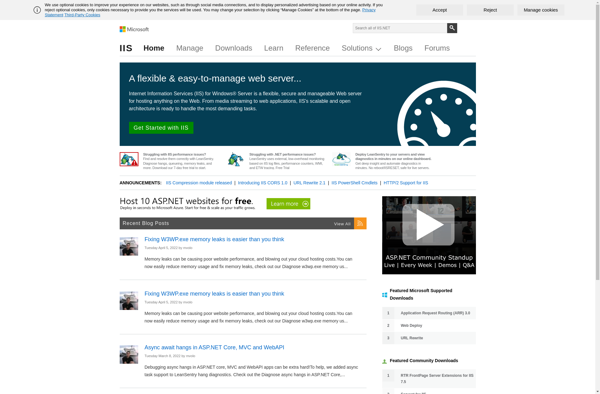
LiteSpeed Web Server (LSWS)

Abyss Webserver
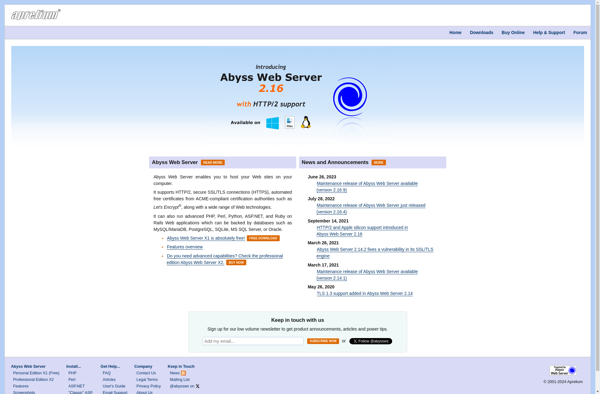
TinyWeb
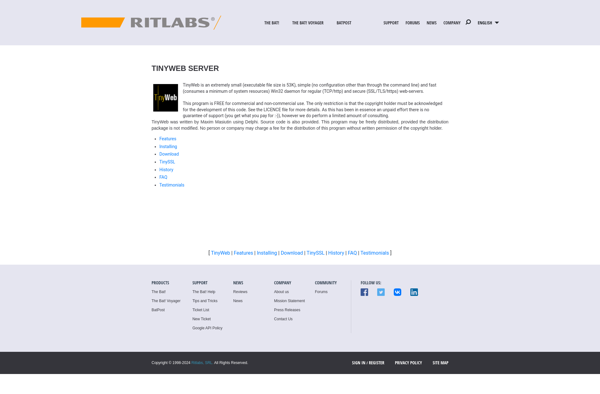
Webfs

Baby Web Server

Cherokee
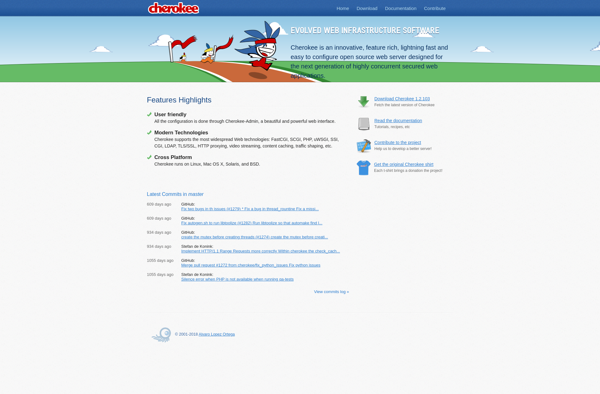
UltiDev
Nanoweb

TrustLeap G-WAN Web Server

Mongrel
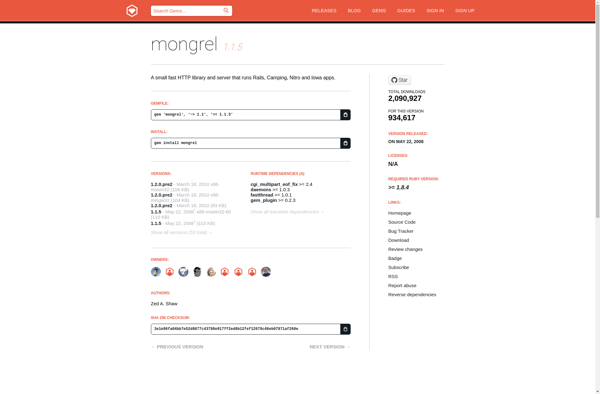
Hiawatha

Mongrel2
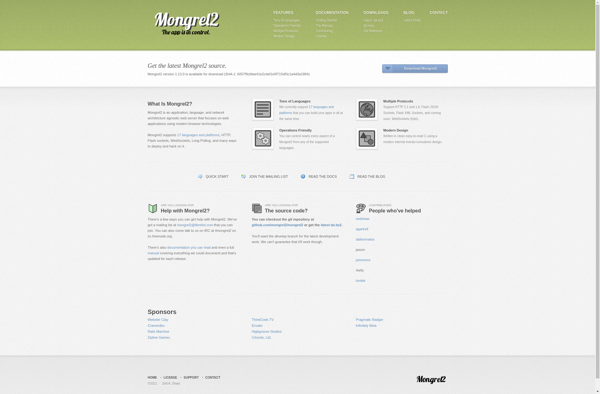
Appweb

VBServer

Tntnet

Asyncoro
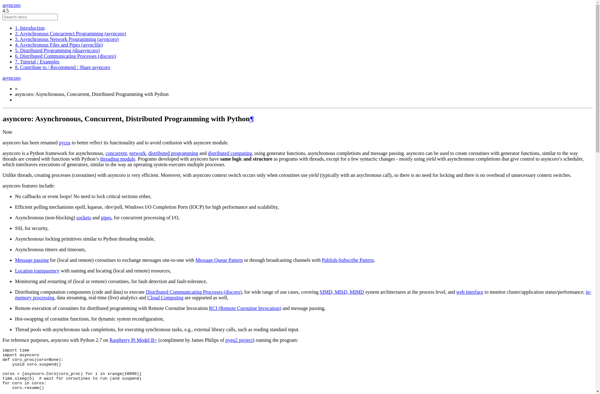
WEBrick
